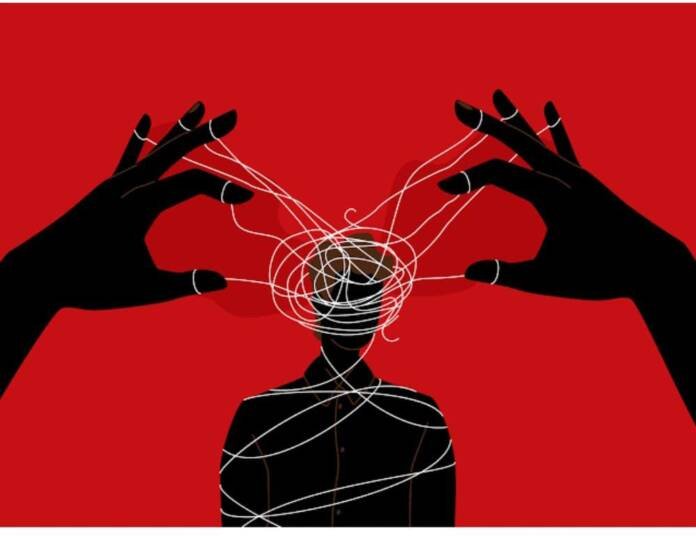Within the intricate maze of the human mind resides a mysterious puzzle known as Narcissistic Personality Disorder (NPD).
Here, self-importance swells to towering heights, the thirst for admiration becomes insatiable, and empathy vanishes into the abyss.
As we navigate through society, workplaces, and homes, the subtle yet destructive tendrils of narcissism weave their way into our interactions as we unveil this intricate web of human behaviour through an enlightening and captivating conversation with Consultant Psychiatrist Dr. Bhushan Patil, Maharashtra.
The Mask of Narcissism
The repercussions of narcissistic behaviour cut deep, leaving a wake of emotional turmoil, shattered self-esteem, and a sense of worthlessness in its path.
In a riveting discussion with Truetolife, on April 15th, Consultant Psychiatrist Dr. Bhushan Patil opened the door to understanding Narcissistic Personality Disorder (NPD) with a poignant insight: “Exploring the layers of NPD and its intricate nature begins with confronting the denial ingrained in their behaviour.”
He further emphasizes, ”Those with such tendencies refuse to accept ‘No’ as an answer, perpetuating their cycle of manipulation and control.”
Unveiling Narcissistic Behaviour in Different Contexts
Narcissistic personalities can manifest at different levels of severity, ranging from mild traits to a full-blown disorder. Recognizing and addressing these traits is crucial, yet acceptance of the condition can pose a significant challenge for individuals with NPD, as they may struggle to acknowledge their behaviour or seek help.
The Consultant Psychiatrist Dr. Bhushan Patil paints a vivid picture, “ In society, the narcissist struts as a peacock, demanding the spotlight at every turn.
In the workplace, they play a twisted game of chess, manoeuvring pieces for personal gain.
And at home, they wear the mask of a puppeteer, pulling strings to maintain control. Yet, behind the façade lies a void of empathy, leaving a trail of shattered relationships in their wake.”
The Ripple Effect: Impact on Others
In the shadow of narcissistic behaviour, the reverberations are profound. Consultant Psychiatrist Dr. Bhushan Patil, in conversation with Truetolife, likens its impact to an unyielding downpour on emotional well-being.
He elaborates: “ With each interaction, victims of narcissistic behaviour find themselves starved of emotional nourishment, their self-esteem wilting under the relentless glare of their oppressor’s ego. Amidst the tempest of manipulation and belittlement, they struggle to find solace, adrift in a sea of insecurity and doubt.”
Narcissism, with its insidious grasp, wreaks havoc on both the delicate fabric of relationships and the robust structure of careers.
Dr.Patil elucidates, “ In the relational realm, having a narcissistic partner creates a lot of perpetual conflict, as the narcissist’s insatiable need for validation clashes with the genuine emotional needs of others. Power struggles become the norm, as they relentlessly seek dominance and control, leaving partners and colleagues drained and disillusioned.”
In the realm of careers, narcissism manifests as a double-edged sword, initially propelling individuals to heights of success through charm and charisma, only to inevitably sow the seeds of their own downfall.
“Their inflated sense of self-importance alienates coworkers and stifles collaboration, while their inability to accept criticism or acknowledge flaws blinds them to opportunities for growth.”
Dr. Patil emphasizes.
Levels of Narcissism: From Traits to Disorder
Narcissistic traits exist on a spectrum, ranging from mild to severe.
“At the gentle edge of the spectrum, one may exhibit sporadic self-centred tendencies or an insatiable hunger for attention. Yet, as these traits evolve, individuals delve deeper into their own desires, neglecting empathy and prioritizing self above all else.” Dr.Bhushan Patil delineates the stages to Truetolife with insightful clarity.
He continued, “ “Descending to the extreme end of the spectrum unveils Narcissistic Personality Disorder (NPD), where grandiosity reigns, admiration becomes an incessant craving, and empathy fades into obscurity. These traits entrench themselves deeply, wreaking havoc across relationships, careers, and overall well-being.”
Spotlight on Narcissistic Traits in Children
Recognizing narcissistic tendencies in children holds paramount importance for timely intervention and support.
Consultant Psychiatrist Dr. Bhushan Patil underscores the critical signs to watch for, cautioning, “An excessive hunger for attention, a dearth of empathy, and manipulative behaviour towards peers and authority figures may signal emerging narcissistic traits in children.”
He emphasizes that parental approaches, whether overly indulgent or neglectful, can mold these behaviours.
Addressing narcissistic tendencies in children demands swift action. Seeking professional guidance, such as from Dr.BhushanPatil, facilitates early intervention, enabling the exploration of underlying issues and preventing further escalation through tailored therapy and parental counselling.
Measures
Exploring broader concerns surrounding safety measures in society , advisories to the local public and families by Consultant Psychiatrist Dr.Bhushan Patil through Truetolife,
1. Pre-marital Counselling: Engage in counselling sessions before tying the knot to address potential issues and establish healthy communication patterns.
2. Personality Matching Tests: Use assessments to better understand compatibility and identify potential red flags in personality traits.
3. Good Parenting Practices: Implement nurturing and supportive parenting strategies to foster empathy and emotional intelligence in children.
4. Vigilance in Self-Reflection: Regularly assess one’s own behaviour for narcissistic tendencies and actively work on personal growth.
5. Early Intervention: Stay alert for signs of narcissism in oneself and others to address issues before they escalate.
6. Acceptance and Treatment: Acknowledge the presence of narcissistic behaviour and seek appropriate treatment and support for personal development and healthier relationships.
Article by Mumbai team for Truetolife
